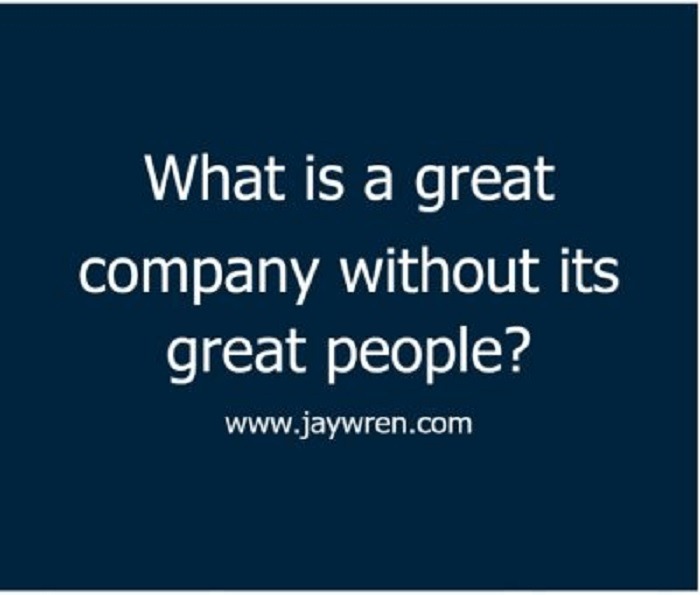Hiring the Best People and Empowering Them to Excel
Hiring the Best People and Empowering Them to Excel: How do great leaders build great companies? Here are some of the things great leaders say.
Hiring the Best People
Lee Iacocca – Automobile Executive
“I hire people brighter than me and I get out of their way.”
Bill Gates – Co-Founder Microsoft
“The competition to hire the best will increase in the years ahead. Companies that give extra flexibility to their employees will have the edge in this area.”
Steve Jobs – Co-Founder, Apple
“I noticed that the dynamic range between what an average person could accomplish and what the best person could accomplish was 50 or 100 to 1. Given that, you’re well advised to go after the cream of the cream. A small team of A+ players can run circles around a giant team of B and C players.”
Jim Collins – Business Consultant, Author
- “Great vision without great people is irrelevant.”
- “The moment you feel the need to tightly manage someone, you’ve made a hiring mistake. The best people don’t need to be managed. Guided, taught, led–yes. But not tightly managed.”
Edwin Booz – Consultant, Founder Booz Allen & Hamilton
“Often the best solution to a management problem is the right person.”
Brian Tracy – Chairman and CEO of Brian Tracy International
“As a business owner or manager, you know that hiring the wrong person is the most costly mistake you can make.”
Johann Wolfgang von Goethe – Author, Scientist, Philosopher
“A great person attracts great people and knows how to hold them together.”
Theodore Roosevelt – President, United States of America
“The best executive is the one who has sense enough to pick good men to do what he wants done, and self-restraint enough to keep from meddling with them while they do it.”
Malcolm Forbes – Publisher, Forbes Magazine
“Never hire someone who knows less than you do about what he’s hired to do.”
David Ogilvy – Advertising Executive
“Hire people who are better than you are, then leave them to get on with it. Look for people who will aim for the remarkable, who will not settle for the routine.”
Akio Morita – Co-Founder Sony
“When I find an employee who turns out to be wrong for a job, I feel it is my fault because I made the decision to hire him.”
Warren Buffett – Chairman & CEO of Berkshire Hathaway
“Somebody once said that in looking for people to hire, you look for three qualities: integrity, intelligence, and energy. And if you don’t have the first, the other two will kill you.”
Paul Russell – Paul Russell Consulting, LLC
“Development can help great people be even better–but if I had a dollar to spend, I’d spend 70 cents getting the right person in the door.”
Red Adair – Oil Well Firefighter
“If you think it’s expensive to hire a professional to do the job, wait until you hire an amateur.”
Robert Bosch – Founder Robert Bosch GmbH
“I don’t pay good wages because I have a lot of money; I have a lot of money because I pay good wages.”

